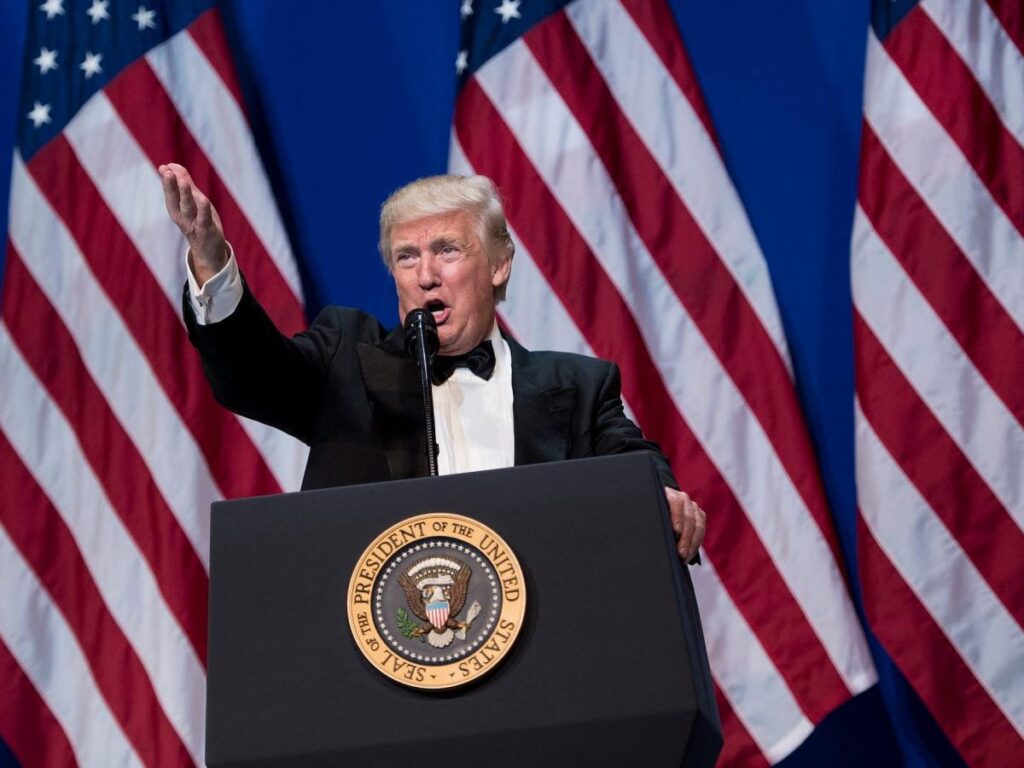Big Tech companies are gearing up to support Donald Trump’s upcoming inauguration with significant financial contributions. Reports indicate that leading firms like Amazon, OpenAI, and Meta, along with their CEOs, are set to donate $1 million each to the presidential inauguration committee. This extensive financial backing highlights an inherent characteristic of inaugural fundraising, where there are virtually no restrictions on the amount that entities can contribute. Such a scenario provides an advantageous opportunity for corporations and wealthy individuals to solidify their connections to the new administration, as they can confidently place their bets on a confirmed winner unlike pre-election campaign donations. This trend has made the financing of inaugurations seem particularly questionable, echoing concerns from watchdogs about the deeply transactional nature of the process, where donations serve as a means for special interests to influence the incoming president.
Historically, Trump’s inaugural event in 2017 set a high fundraising bar, collecting approximately $107 million, with notable contributions from high-profile donors such as Sheldon Adelson and AT&T. This inauguration allows these companies and their leaders to engage in relationship-building with the president at the apex of his power. As Trump is term-limited, this event represents one of the last major opportunities for such financial engagements before any lengthy hiatus regarding presidential fundraising until potential future projects like a presidential library. The urgency is compounded by the fondness for mergers and acquisitions, leading many corporate backers to feel the need for timely influence before regulatory or legislative barriers emerge.
The implications of these donations are significant, as evidenced by research conducted in 2018 that suggested that over half of the federal contractors who supported Trump’s initial inauguration later benefited by securing lucrative federal contracts. This pattern showcases how donations can translate into substantial financial gains, reinforcing the idea that contributing to an inaugural fund is a strategic move for entities keen on leveraging their relationship with the new administration. Furthermore, while foreign contributions are prohibited, the lack of comprehensive oversight on the spending of donations creates an environment where transparency is minimal, allowing potential for misuse.
Unlike past administrations, where some had proposed or implemented limits on contributions such as Obama’s voluntary restrictions, Trump’s committee may not impose such guidelines. This absence of constraints presents a transactional environment ripe for corporations with specific agendas, whether to secure new business opportunities or shield themselves from governmental scrutiny. Executives in the tech industry are particularly scrutinized given the heightened antitrust discussions and regulatory pressures concerning their operations. The interplay between political contributions and potential favorable outcomes continues to be an area of focus for both watchdogs and the public.
High-profile tech leaders are actively seeking to mend relations with Trump following previous tensions during his presidency. Both Jeff Bezos and Mark Zuckerberg have navigated complex interpersonal dynamics with Trump and his administration. Seizing the opportunity presented by Trump’s forthcoming inauguration, these tech giants appear intent on fostering an improved rapport, potentially recognizing that strong ties with the administration could be beneficial moving forward. Sam Altman of OpenAI has explicitly stated his belief in Trump’s leadership in ushering the nation into the era of artificial intelligence, underscoring a calculated approach toward aligning corporate interests with the political landscape.
Looking forward, Trump’s inauguration presents an unfiltered opportunity for donors, distinguishing it from the structured nature of previous administrations’ events where limits and oversight may have dampened excessive influence. For various donors, the payoffs can be substantial, with potential returns on investment that resonate far beyond mere access to the newly elected president. The events at previous inaugurations, such as those seen during Biden’s, serve as a precursor to what might transpire when it comes to exclusive access and advantage networks. With no such restrictions for Trump’s event, it creates an atmosphere of high-stakes gameplay where the implications of corporate contributions can significantly sway policymaking and administration interactions.

